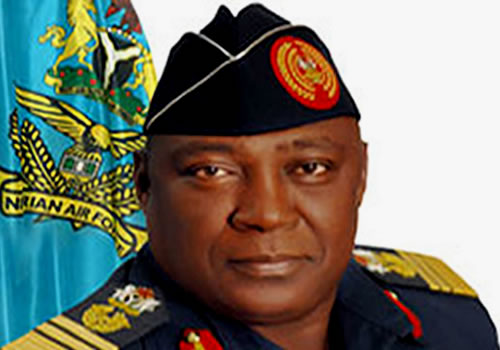THE killing of former Chief of Defence Staff (2014-2015), Air Chief Marshal Alexander Sabundu Badeh, on Tuesday December 18 by still unknown assailants is a grim reminder of the general state of insecurity in the country. According to reports in the media, the four-star flag officer of the Nigerian Air Force was slain following an ambush by gunmen while he was returning from his farm along the Keffi-Abuja road.
Sadly, and as is now routine with events of this nature in the country, the facts of this tragic incident have been difficult to nail down. For instance, in some of the earliest reports, it was claimed that two of the former Chief of Air Staff’s aides, including his driver, were killed along with their boss. However, three days after the incident, the Nigerian Air Force’s Director of Public Relations and Information, Air Commodore Ibikunle Daramola, denied in a public statement that Badeh’s driver had lost his life in the incident.
Even so, Air Commodore Daramola’s clarification did not entirely clear the air. For instance, his statement made no mention of the number of people who died along with the four-star general, and although he insisted that Air Chief Marshal Badeh had “always been provided with the full complement of personal staff and security personnel commensurate with his status,” there was no mention of whether he had them in tow. Was the Air Chief Marshal traveling with his security aides? If so, how many? And, since, as security personnel protecting such a high-ranking officer, they must have been fully armed, did they return the assailants’ fire? If they did not, why? The Nigerian public would appreciate answers to these questions.
Late last week, when the Nigeria Police Force announced that it had arrested the late Air Chief’s alleged killers and that it planned to present them to reporters in Abuja, it appeared that there had been a breakthrough in police investigations into the case. However, the public presentation of the alleged killers was later called off by the force spokesperson, Deputy Commissioner of Police (DCP) Jimoh Moshood, “so as not to jeopardise the investigation.” Similar to Air Commodore Daramola’s statement, DCP Moshood’s address to the press raises some pertinent questions. Why the last-minute change of mind regarding the parade of the alleged killers after raising the public’s hope? If, indeed, the force had made “substantial progress on the investigation” only days after the incident as Mr. Moshood claimed, what stops it from telling the public what it already knows?
We ask these questions not to challenge the integrity of both the Air Force and police spokespersons, but because painful experience has taught us that in Nigeria, and admittedly in many cases due to factors beyond the capacity of law enforcement, murders are hardly ever resolved. There are just too many examples to mention. Against this backdrop, we take DCP Moshood at his word that “the force will not relent and will leave no stone unturned in getting to the root of the killing and bringing all perpetrators of this heinous crime to justice.”
Yet, even as we back law enforcement in its resolve to find and bring Air Chief Marshal Badeh’s killers to justice, we wish to underscore the important fact that the killing is another indication of the generalised social precarity in the country. The Federal Government needs to act before the situation gets out of control.






